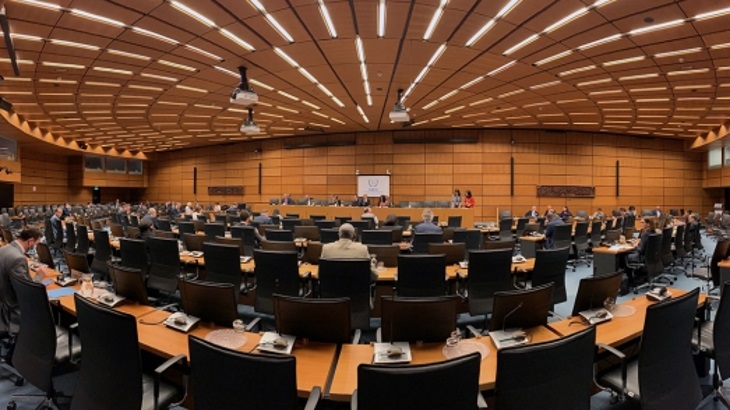The resolution follows reports in March and June by IAEA Director General Rafael Mariano Grossi describing the Agency's efforts and interactions with Iran to clarify information relating to the correctness and completeness of Iran's declarations under its Safeguards Agreement and Additional Protocol, including denial of access to two locations specified by the IAEA under the Additional Protocol and continued lack of clarification regarding Agency questions related to possible undeclared nuclear material and nuclear related activities in Iran.
The text of the resolution includes the statement that the Board of Governors, "Echoes the serious concern expressed by the Director General in his report GOV/2020/30 that Iran has not provided access to the Agency under the Additional Protocol to two locations and that discussions engaged, for almost a year, to clarify Agency questions related to possible undeclared nuclear material and nuclear related activities in Iran have not led to progress."
The resolution stressed the importance of States complying fully with their safeguards obligations and facilitating access as required when notified by the IAEA. It emphasised the "essential and independent role" of the IAEA in verifying Iran's compliance with its safeguards obligations to provide credible assurance of the exclusively peaceful nature of the country’s nuclear programme.
The UK's Foreign & Commonwealth Office (FCO) had earlier announced "crunch talks" to find a diplomatic solution to Iran's destabilising activities in the Middle East, as British Foreign Secretary Dominic Raab travelled to Berlin for talks with his ‘E3’ counterparts - German Foreign Minister Heiko Maas and French Foreign Minister Jean-Yves Le Drian.
In January this year, the E3 triggered the Dispute Resolution Mechanism to preserve the nuclear deal and bring Iran back into compliance. The FCO said the E3 "remains committed to that process".
Informally known as the Iran nuclear deal, the Joint Comprehensive Plan of Action was signed in July 2015 by Iran and the E3/EU+3 (China, France, Germany, Russia, the UK and the USA - also referred to as the P5+1 - plus the European Union) and implemented in January 2016. Under its terms, Iran agreed to limit its uranium enrichment activities, eliminate its stockpile of medium-enriched uranium and limit its stockpile of low-enriched uranium over the subsequent 15 years.





_18570.jpg)
_18938.jpg)
_33584.jpg)
_82983.jpg)





